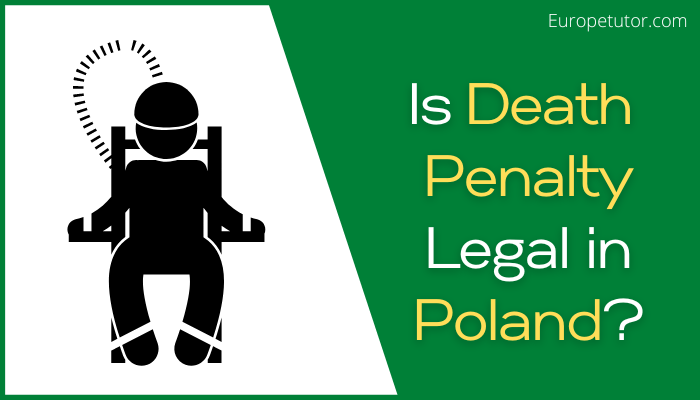The death penalty isn’t legal in Poland. Poland’s last execution was of a 28 years old rapist and murderer and was carried out by hanging on April 21, 1988. The government abolished the death penalty in 1997.
Also, in 2013, Poland ratified a Council of Europe (CoE) protocol prohibiting capital punishment in all circumstances. Abolition of the death penalty is now a requirement of EU membership.
After the collapse of communism in 1989 only a few death sentences were imposed in Poland, however, none of them were carried out.
How was the death penalty executed in Poland?
The prisoner was unaware of the fact that he is being executed. He was not informed of the date and time of the execution. Only at the last moment, he knew.
Their relatives would know only after the death. Relatives weren’t pre-informed.
Typically, executions would take place around 6.00 p.m., when there were the most prison guards present.
The prisoner had a right to a last wish – e.g. cigarette, a simple last meal, or writing a letter to their family.
Except for the prison guards, medical team, and executioner, the only people present during the execution were the prosecutor (not the judges) and, if the prisoner wished, a priest and his lawyer.
Life imprisonment in Poland
In present days, there is no death penalty in Poland, however, there is life imprisonment.
Life imprisonment in Poland has an indeterminate length. It can be imposed for treason, the assassination of the Polish president, war of aggression, genocide, crimes against humanity, unlawful use of a weapon of mass destruction, war crimes, murder, homicide, and serious bodily harm resulting in death.
The prisoner must serve at least 25 years in order to be eligible for parole.
The court may also choose to set a higher minimum term than 25 years at sentencing.
You may also like to read:
